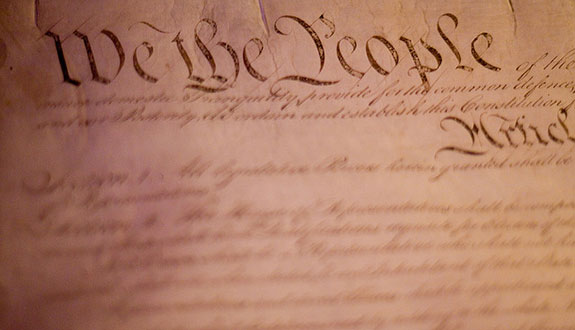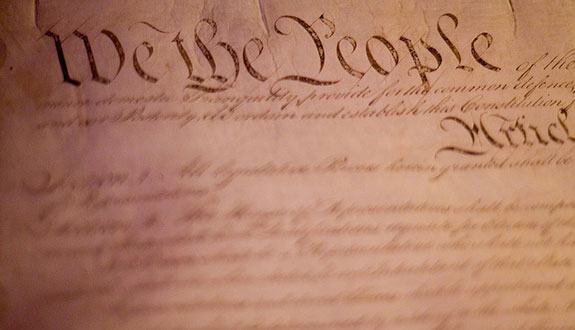Happy 5th of July!
- by
- Jul 05, 2016
- Law School, Legal Life
- Reviewed by: Matt Riley


I — as well as everyone else who doesn’t work for/with Satan — was reveling in the Independence Day spirit yesterday. Hence, no 4th of July blog post. However, now that it’s 5th of July and we’re back at school/work (meh), it’s time to contemplate the meaning of our proto-Brexit 240 years ago. Since this is a blog aimed largely at future lawyers, an exploration of the Constitution and the practice of Constitutional Law is germane.
Yes, I can hear you sticklers for historical accuracy bleating wildly about the context: “The Constitution was written thirteen years after the Declaration of Independence.” “We’d already been through one form of national government at that point.” “The Declaration was a non-binding document expressing a philosophy, whereas the Constitution is a binding document establishing a government.” Yes, yes, and yes. You’re right on all of these accounts. So what?
The Constitution is the valorous attempt at creating a system of governance that embodies the high minded principles outlined in the Declaration of Independence, which was in large part a condemnation of the monarchy.
With that out of the way, what exactly does it mean to be a practitioner of Constitutional Law?
First, lawyers who practice Constitutional Law in the broad sense are often specialists in particular areas. They’re also about .00001% of the lawyers in this country. (Do not fact check that claim.) A very prominent group that deals with Constitutional Law is the American Civil Liberties Union (ACLU). You’ve likely heard of them. They deal very often in First Amendment law. “Freedom of Speech” is the shorthand explanation of what the First Amendment stands for, although that’s a gross oversimplification of an area of law that has been litigated fiercely for hundreds of years now.
The ACLU files suits on behalf of people and groups who feel that the government has limited their right to speak in violation of the First Amendment. In a landmark — and quite controversial — case, National Socialist Party of America v. Village of Skokie, the ACLU, which often represents oppressed minority groups, sued the Village of Skokie, Illinois because the city government attempted to prevent a demonstration by a white supremacist organization. The ACLU won, even though it earned the jeers of many one-time supporters.
Other groups often challenge government actions on grounds relating to other amendments. The Fourth Amendment prohibits unreasonable search and seizure, including arrests. The Fifth Amendment guarantees the right to due process when the government tries to take your property, freedom, or your life. The Sixth Amendment guarantees the right to be represented in a criminal case. There are lawyers for different groups, usually nonprofits, that sue the government on behalf of others. There is also a select group of lawyers focusing on the right to bear arms outlined in the Second Amendment.
Many cases involving the actions of state governments fall under the Equal Protection clause of the Fourteenth Amendment, adopted after, and in response to, the Civil War. One of the most famous cases, Brown v. Board of Education of Topeka, argued by legal legend and subsequent supreme court justice Thurgood Marshall, determined whether school segregation by race constituted a failure to guarantee equal protection to residents of Kansas. Short answer, it sure does.
In all of the cases above, the issues litigated are purely constitutional, and lawyers working on the cases generally provide their services for free and act as government watchdogs.
The second, and far more common way, that lawyers practice Constitutional Law is when a constitutional issue pops up in a case that could be about any other number of things. One business might sue another for fraud, in which case the defending party might invoke the First Amendment as a defense for their statements, arguing that a court may not stifle that right even if the fraudulent statement was indeed problematic.
When a person or business in one state sues a person or business in another state, those cases often land in federal courts because they have jurisdiction in all fifty states, whereas a state court only has jurisdiction in its own state. One Constitutional issue always lurking is whether the lawsuit is the kind that may be brought in federal court.
Finally, businesses and individuals often sue the government for trampling their legitimate activities and raise Constitutional issues in those suits.
If you’re interested in how this aged document and more recent additions work and affect your life, here’s a good place to start. As an aside, I absolutely loved Constitutional Law in law school, and it’s quite fascinating all around.
Written by: Blueprint LSAT Instructor
Search the Blog

Free LSAT Practice Account
Sign up for a free Blueprint LSAT account and get access to a free trial of the Self-Paced Course and a free practice LSAT with a detailed score report, mind-blowing analytics, and explanatory videos.
Learn More
Popular Posts
-
logic games Game Over: LSAC Says Farewell to Logic Games
-
General LSAT Advice How to Get a 180 on the LSAT
-
Entertainment Revisiting Elle's LSAT Journey from Legally Blonde








